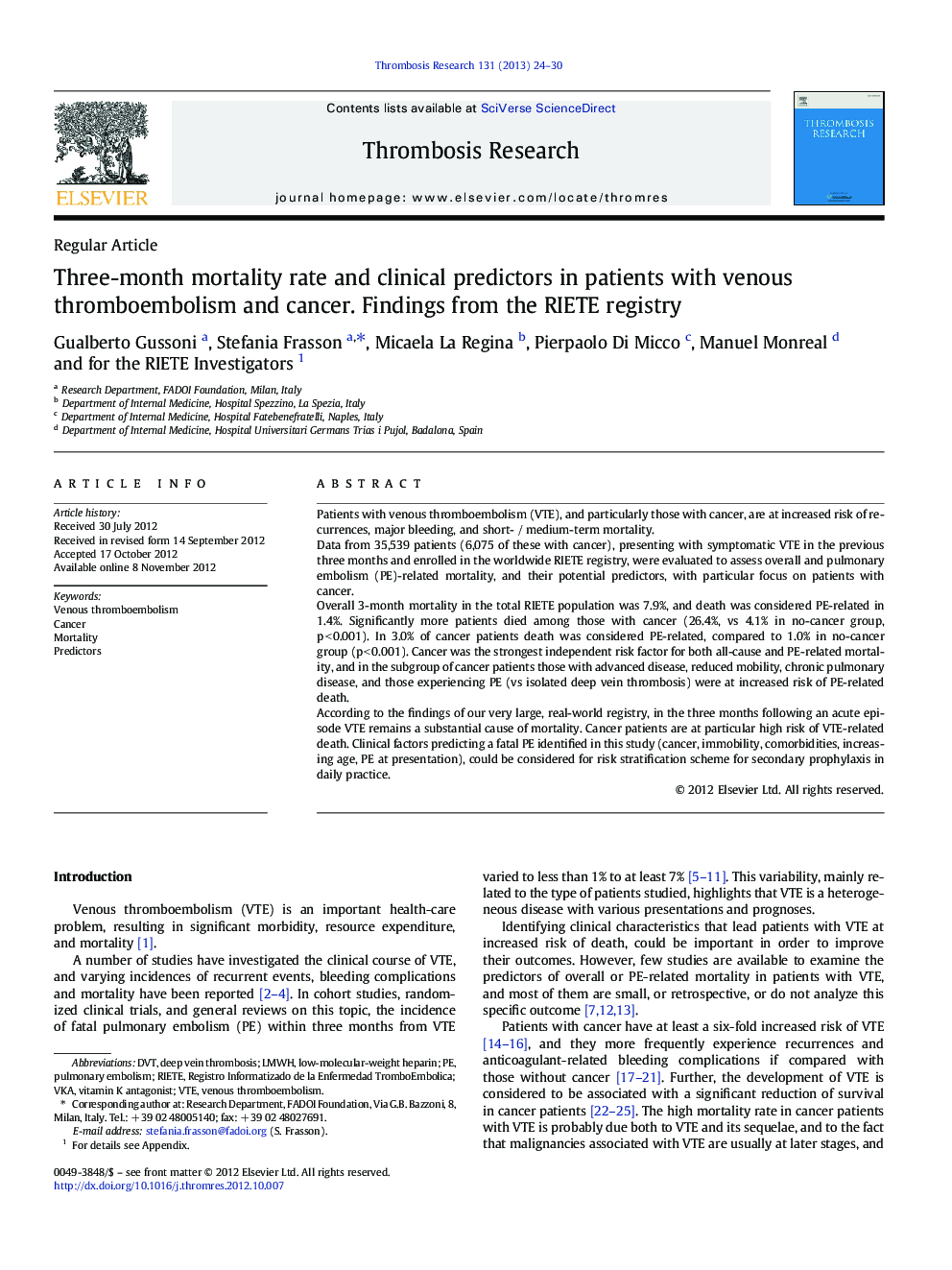| Article ID | Journal | Published Year | Pages | File Type |
|---|---|---|---|---|
| 6003253 | Thrombosis Research | 2013 | 7 Pages |
Patients with venous thromboembolism (VTE), and particularly those with cancer, are at increased risk of recurrences, major bleeding, and short- / medium-term mortality.Data from 35,539 patients (6,075 of these with cancer), presenting with symptomatic VTE in the previous three months and enrolled in the worldwide RIETE registry, were evaluated to assess overall and pulmonary embolism (PE)-related mortality, and their potential predictors, with particular focus on patients with cancer.Overall 3-month mortality in the total RIETE population was 7.9%, and death was considered PE-related in 1.4%. Significantly more patients died among those with cancer (26.4%, vs 4.1% in no-cancer group, p < 0.001). In 3.0% of cancer patients death was considered PE-related, compared to 1.0% in no-cancer group (p < 0.001). Cancer was the strongest independent risk factor for both all-cause and PE-related mortality, and in the subgroup of cancer patients those with advanced disease, reduced mobility, chronic pulmonary disease, and those experiencing PE (vs isolated deep vein thrombosis) were at increased risk of PE-related death.According to the findings of our very large, real-world registry, in the three months following an acute episode VTE remains a substantial cause of mortality. Cancer patients are at particular high risk of VTE-related death. Clinical factors predicting a fatal PE identified in this study (cancer, immobility, comorbidities, increasing age, PE at presentation), could be considered for risk stratification scheme for secondary prophylaxis in daily practice.
